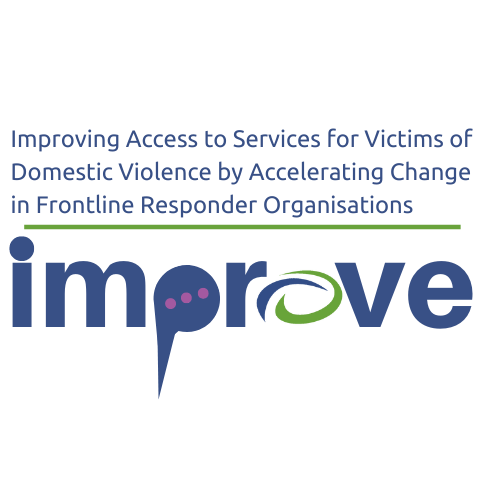Dori Szego, FORESEE
Could you please tell us a bit about yourself?
I am a sociologist and mental-health professional. I have been involved in several criminal justice related projects since 2010. Many of them were examining the potential of restorative justice and restorative methods, focusing on the needs of the victims, on taking responsibility and repairing harm in the Hungarian criminal justice settings. Among them Medation and Restorative Justice in Prison settings and Peacemaking Circles in Europe. An other scope of my interest is vulnerable offenders - children, people with disabilities, persons living in deep poverty - and their rights in the criminal procedure as well as in prison settings. I have been engaged in improving answers to domestic violence through Foresee Research Group, which participated in the IMPRODOVA project, the antecedent of IPROVE. In the previous project we got an insight to the shortcomings of the frontline response to domestic violence in the social, criminal justice and health care systems.
Could you describe your role in the IMPROVE project?
I am working on several research tasks. Foresee is a leader in Task 1.4. -, in which we examine the lessons learned from the COVID 19 pandemic across the partner countries, and try to identify and describe possible good solutions that improve institutional responses to domestic violence and support victims’ needs better even after the pandemic is over. Besides that we try to assist other members of the consortium mainly via qualitative research, literature review and improving practical outputs of the project, such as training materials.
If you could get three wishes related to IMPROVE come true, what would those three be?
My wishes would be mainly related to our national field: having a deeper insight into the field adressing domestic violence, especially on the level of effective social policies, I have an impression that we have a lot to improve in our national context compared to other countries. This concerns the attitude of FLRs – closely connected to prejudice and neglectful attitudes in the society – as well as effective answers to the victims’ needs and innovative solutions to complex problems. I wish that we can promote and channel the material produced by IMPROVE to our stakeholders and practitioners and on the one hand they get inspiration on the other hand they will practically benefit from the material created by IMPROVE. A further wish is that we can give visibility for those unique, innovative initiatives from Hungary that we identified and that are the first examples of transformation on a systemic level. Including programs that support vulnerable victims, like refugees of the Ukrainian war as well as initiatives that promote cooperation and sharing of experience among the isolated FLR agencies.
"I wish is that we can give visibility for those unique, innovative initiatives from Hungary that we identified and that are the first examples of transformation on a systemic level."
"Another scope of my interest is vulnerable offenders - children, people with disabilities, persons living in deep poverty - and their rights in the criminal procedure as well as in prison settings."
"In Task 1.4. we examine the lessons learned from the COVID 19 pandemic across the partner countries, and try to identify and describe possible good solutions that improve institutional responses to domestic violence and support victims’ needs better even after the pandemic is over."


